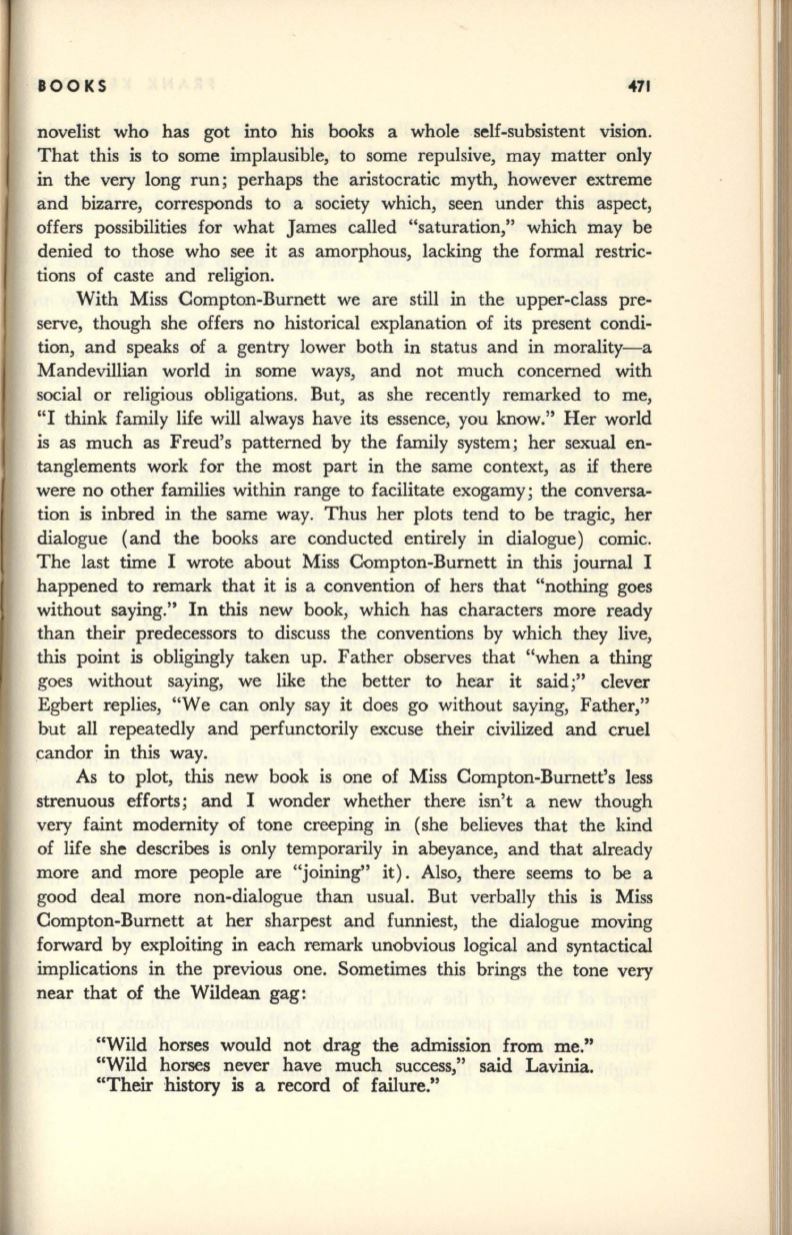
BOOKS
471
novelist who has got into his books a whole self-subsistent
VISIon.
That this is to some implausible, to some repulsive, may matter only
in the very long run; perhaps the aristocratic myth, however extreme
and bizarre, corresponds to a society which, seen under this aspect,
offers possibilities for what James called "saturation," which may be
denied to those who see it as amorphous, lacking the formal restric–
tions of caste and religion.
With Miss Compton-Burnett we are still in the upper-class pre–
serve, though she offers no historical explanation of its present condi–
tion, and speaks of a gentry lower both in status and in morality-a
Mandevillian world in some ways, and not much concerned with
social or religious obligations. But, as she recently remarked to me,
"I think family life will always have its essence, you know." Her world
is as much as Freud's patterned by the family system; her sexual en–
tanglements work for the most part in the same context, as
if
there
were no other families within range to facilitate exogamy; the conversa–
tion is inbred in the same way. Thus her plots tend to be tragic, her
dialogue (and the books are conducted entirely in dialogue) comic.
The last time I wrote about Miss Compton-Burnett in this journal I
happened to remark that it is a convention of hers that "nothing goes
without saying." In this new book, which has characters more ready
than their predecessors to discuss the conventions by which they live,
this point
is
obligingly taken up. Father observes that "when a thing
goes without saying, we like the better to hear it said;" clever
Egbert replies, "We can only say it does go without saying, Father,"
but all repeatedly and perfunctorily excuse their civilized and cruel
candor in this way.
As to plot, this new book is one of Miss Compton-Burnett's less
strenuous efforts; and I wonder whether there isn't a new though
very faint modernity of tone creeping in (she believes that the kind
of life she describes is only temporarily in abeyance, and that already
more and more people are "joining" it). Also, there seems to be a
good deal more non-dialogue than usual. But verbally this is Miss
Compton-Burnett at her sharpest and funniest, the dialogue moving
forward by exploiting in each remark unobvious logical and syntactical
implications in the previous one. Sometimes this brings the tone very
near that of the Wildean gag:
"Wild horses would not drag the admission from me."
"Wild horses never have much success," said Lavinia.
"Their history is a record of failure."


